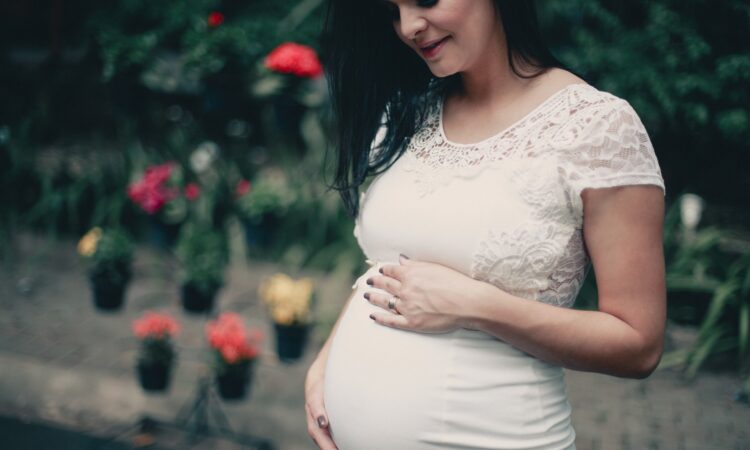
Table of Contents
If you get excruciating leg cramps, you’re not alone. The majority of pregnant women experience them sometime in the second or third trimester, most frequently during the night. No one can say for certain why pregnant women are more likely to experience leg cramps. It’s possible that it’s related to changes in blood circulation as well as the strain that carrying more weight puts on the muscles in your legs. According to some medical professionals, the cramping may be the result of low calcium levels or changes in the way your body absorbs calcium. Leg cramps typically disappear after a few minutes have passed.
What Are Leg Cramps During Pregnancy?
A cramp is a sudden, intense discomfort that occurs most frequently in the calf muscles or the foot. A cramp is the result of your muscles tightening in an abnormally forceful manner when they should not be doing so. Nighttime contractions are the norm, and you’re more likely to experience them later in your pregnancy. They can cause a lot of discomforts, and it’s not always easy to know what to do about them.
During pregnancy, you may experience cramping for a variety of reasons, including but not limited to carrying additional weight.
- Experience changes in your metabolism
- Being deficient in a vitamin
- Being too active
- Being not active enough.
The honest truth is that no one is actually aware of this.
Is there a distinction to be made between leg cramps and discomfort in the legs?
Leg cramps can be excruciatingly painful, but on the bright side, they often only last for a brief period of time. If the pain in your legs does not go away fast, it may be an indication that something more is wrong.
It’s possible that you have a condition called varicose veins. On your legs, you will notice that your veins are thick, ropey, and frequently twisted. During pregnancy, the pressure exerted by your expanding uterus causes the blood in your veins to back up and pool, which in turn causes your veins to bulge.
There is also a possibility that the pain is sciatica, which is brought on when there is pressure placed on the sciatic nerve in the lower back. It might be described as a stabbing or shooting pain that travels down both of your legs.
Leg pain is a symptom of deep vein thrombosis (DVT), which occurs when a blood clot forms in one of the deep veins in your leg. This condition only occurs very rarely. Your chance of developing one of these blood clots may rise during pregnancy. It is essential to make an appointment with a medical professional if you experience symptoms such as swelling, warmth, or redness in your leg. This is due to the fact that deep vein thrombosis (DVT) can be dangerous if the clot breaks off and goes into your lungs.
Causes of Leg Cramps
Even if the precise reason why pregnant women have leg cramps is unknown, there are things that may be done to avoid them. Take, for instance:
Warm up your calf Muscles
Even though there isn’t much data to support it, stretching before going to bed might assist pregnant women to avoid getting leg cramps. Place your hands on the wall in front of you while standing with an arm’s length distance between you and the wall. Bend your left knee forward slowly while maintaining a straight knee on your right leg and keeping your right heel on the ground. Maintain the stretch for approximately thirty seconds, making sure to keep your hips forward and your back straight the entire time. You shouldn’t turn your feet either inwards or outwards. Alternate between your legs and continue.
Keep yourself Busy
Leg cramps are a common symptom of pregnancy, but they may be prevented with regular exercise. Be sure to get the all-clear from your doctor or other healthcare professional before beginning an exercise routine.
Take a magnesium Supplement
There is some evidence, albeit limited, that taking a magnesium supplement can help avoid leg cramps in pregnant women. Before you start taking a supplement, check with your doctor to make sure you have their approval. You should also think about increasing your consumption of foods that are high in magnesium, such as whole grains, beans, dried fruits, nuts, and seeds.
Be sure to stay Hydrated
Maintaining a healthy level of hydration in your muscles can perhaps assist in preventing cramps.
If you are drinking enough water throughout the day, the color of your urine should be pale yellow or relatively clear. If the color of your urine is darker than normal, it may be an indication that you are not drinking enough water.
Step by Step Care
- While you stretch, make sure to flex your heels. If you tend to suffer from cramps during the night, stretching before bed can help.
- If you feel a cramp coming on, try stretching out your leg from the heel to the toes and wriggling your toes. You can relax the muscles in your calf by giving it a little massage.
- Avoid remaining seated or standing in the same position for an extended period of time. Make some noise. Avoid sitting in positions that could restrict the flow of blood, such as crossing your legs.
- If your doctor gives you the go-ahead, try taking a daily walk or engaging in some other form of regular exercise to keep cramps at bay.
- Consume a lot of fluids in order to maintain the proper hydration level in your muscles.
- Take a warm bath before going to bed to relax your leg muscles and prevent nighttime cramps.
- When you feel a cramp coming on, apply heat to the affected area by wrapping a warm cloth around you or using a hot water bottle.
Conclusion
Leg cramps are a common complaint among pregnant women, although the cause of these cramps is not fully understood. It’s possible that the soreness in your legs is caused by carrying around additional weight, not moving around as much, or a deficiency in key vitamins. But it is always better to talk to a top gynecologist for assistance.
Marham provides the best and most durable way to talk with healthcare experts. You can book appointments and medical health tests.
FAQ
What does it mean when a pregnant woman has pain in her legs?
When a woman is pregnant, she may get leg cramps as a result of exhaustion, the uterus pressing on certain nerves, or impaired circulation in the legs as a result of the pressure that the baby exerts on blood vessels. They could also be brought on by a lack of calcium or magnesium in the body, as well as dehydration.





